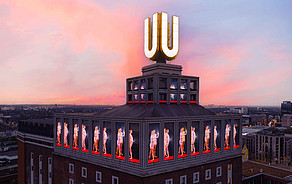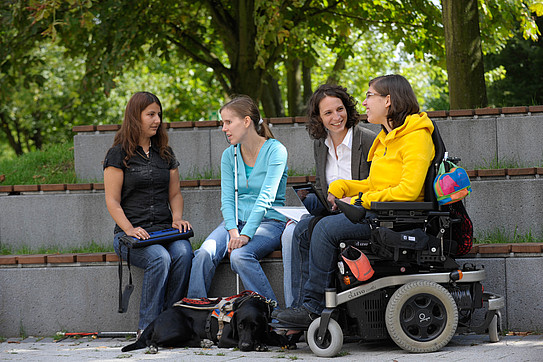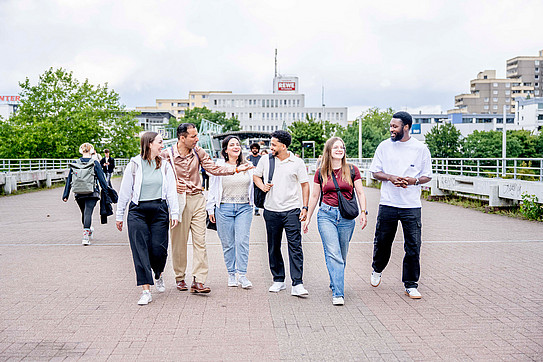Diversity
Diversity is the heartbeat of the Ruhr area and one of our strongest assets—a driver of creativity and innovation. Almost half of our students are first-generation students (many with a migrant background) and people from more than 130 different countries are part of our community. We have a long tradition of supporting exiled scholars, providing a safe space for refugees, and have implemented state-of-the-art anti-discrimination activities as well as measures to promote accessibility and inclusion. We aim at a single operating capability: inclusive excellence with international outreach.
First-Generation Students: Backing up Young Talents
The Ruhr area has a dynamic history of advancement through education: In 1980, the number of students surpassed the number of coal and steel workers for the first time. Today, the region still has the highest percentage of first-generation students in Germany, many of which come from a migrant or refugee background. Ruhr University Bochum and TU Dortmund University are contributing to this success story by encouraging talented young people to be the first in their families to study at a university through their outreach programs.
Embracing Differences: Creating a Diversity-Friendly University
How can we sustainably embed diversity in our university structures? The Ruhr Innovation Lab addresses this challenge by implementing measures to foster a diversity-friendly environment: Ruhr University Bochum has established a comprehensive diversity strategy , while TU Dortmund University, guided by the “Charta der Vielfalt” (Diversity Charter), offers counseling and support services to enhance inclusivity. Both universities have also successfully completed the “Vielfalt gestalten” (Shaping Diversity) audit by the Stifterverband.
DoBuS: Pioneering Inclusivity in Education
The Division of Disability and Studies (DoBuS) at TU Dortmund University focuses on creating equitable conditions for students with disabilities and chronic illnesses. Established in the 1970s, DoBuS collaborates with university institutions to integrate inclusivity into research, teaching, and learning. By implementing initiatives such as a campus-wide accessibility plan with 24 measures, DoBuS translates values into practice, actively removing barriers in higher education and fostering an inclusive environment.
Internationalization at Home: Experience the World Locally
At the Ruhr Innovation Lab, those who want to gain international experience do not necessarily have to travel far. Students have many opportunities for international exchange on their home campus, for example at the International Meeting Center of TU Dortmund University or at the foreign language centers. In addition, the partnership in the UNIC network enables students to attend online courses at other European universities and, as part of Virtual Exchange, provides opportunities to combine subject content with intercultural exchange and to collaborate digitally with students from other universities









